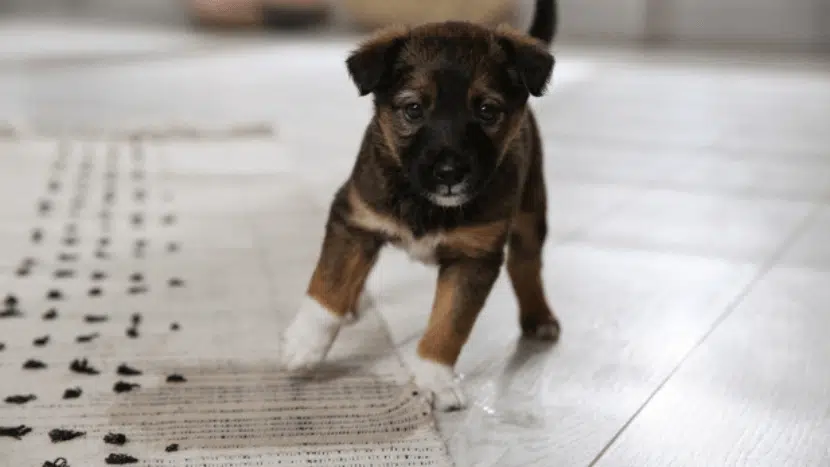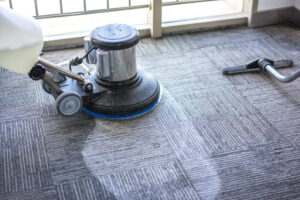Living with a dog brings joy, companionship, and sometimes, a bit of a mess. One of the most common challenges pet owners face is dealing with the smell of dog urine in the house. Whether it’s due to a puppy still learning where to go, an older dog with health issues, or occasional accidents, the lingering odor can be unpleasant. The smell of dog urine is particularly strong because it contains ammonia and bacteria that can seep into carpets, fabrics, and even flooring if not treated promptly. This guide will walk you through simple yet effective methods to eliminate that stubborn smell and keep your home fresh. From natural remedies to specialized cleaning products, we’ve got you covered with everything you need to know for a cleaner, odor-free home.
Understanding Why Dog Pee Smell Lingers
The first step to getting rid of the smell is understanding why it’s so persistent. Dog urine consists of ammonia, urea, and other waste products. When left untreated, the bacteria in the urine break down these compounds, releasing gases that produce a strong odor. Over time, this odor can become more intense, especially if the urine has seeped into carpets, fabrics, or porous materials.
Act Quickly: The Importance of Immediate Cleaning
When it comes to dog urine, time is of the essence. The quicker you act, the easier it is to prevent the smell from setting in. Start by blotting the area with paper towels or an old cloth to soak up as much of the liquid as possible. Avoid rubbing the spot, as this can spread the urine deeper into the fibers or material. Use gentle pressure and change the paper towels or cloth frequently to absorb as much urine as possible.
1. Using Water and Dish Soap for Initial Cleaning
For fresh stains, a mixture of water and mild dish soap can be an effective initial cleaning solution. Mix a few drops of dish soap in warm water and use a clean cloth to gently dab the area. Rinse with clean water and blot the area dry. This method helps to remove the immediate odor and prevents it from becoming a lasting problem.
2. Natural Remedies for Removing Dog Pee Smell
If you prefer natural remedies, there are several options that can effectively neutralize urine odors:
- Vinegar and Baking Soda Solution: Mix equal parts of white vinegar and water in a spray bottle. Vinegar is a natural deodorizer and disinfectant, which helps neutralize the ammonia in urine. Spray the solution generously on the affected area and let it sit for about 10-15 minutes. Then, blot the area with a clean cloth. Sprinkle baking soda over the spot and let it sit for a few hours or overnight. The baking soda will absorb any remaining odors. Vacuum the area thoroughly afterward.
- Hydrogen Peroxide and Baking Soda: Combine a cup of hydrogen peroxide, a teaspoon of dish soap, and a tablespoon of baking soda. Apply this mixture to the stained area, allowing it to sit for 10-15 minutes. Rinse with water and blot dry. This combination helps break down the odor-causing compounds in urine and leaves the area smelling fresh.
- Lemon Juice: Lemon juice is another natural deodorizer with antibacterial properties. Mix fresh lemon juice with an equal part of water and apply it to the stained area. Allow it to sit for a few minutes, then blot dry. The fresh scent of lemon helps mask any residual smells while the acid helps neutralize the urine odor.
3. Commercial Cleaning Products Designed for Pet Odors
There are many products specifically designed to tackle pet odors. Look for enzyme-based cleaners that break down the proteins in urine, effectively eliminating both the stain and the smell. Follow the instructions on the product for best results, and always test it on a small, inconspicuous area first to ensure it does not damage your carpet or fabric.
4. Deep Cleaning Carpets and Upholstery
If the smell persists after initial cleaning, you may need to deep clean your carpets or upholstery. Renting a carpet cleaner or using a steam cleaner can help. Fill the machine with a mixture of water and an enzymatic cleaner or a cleaning solution recommended for pet stains. Make sure to go over the affected areas slowly to ensure that the cleaner penetrates deep into the fibers.
5. Cleaning Hardwood and Tile Floors
For hardwood or tile floors, start by blotting up the urine with paper towels. Clean the area with a mixture of water and a mild floor cleaner or a vinegar solution. For stubborn odors, use an enzyme cleaner specifically designed for hard surfaces. Make sure to dry the area thoroughly to prevent moisture damage, particularly for hardwood floors.
6. Addressing Odor in Carpets and Rugs
Carpets and rugs are notorious for holding onto smells. In addition to using enzyme cleaners and natural remedies, sprinkle baking soda generously over the entire carpet and let it sit for several hours or overnight. Baking soda is a natural odor absorber that can help neutralize any lingering smells. After allowing it to sit, vacuum thoroughly.
7. Using an Air Purifier to Remove Airborne Odors
While cleaning the surfaces is essential, it’s also important to address any airborne odors. An air purifier with a HEPA filter can help trap odor particles and clean the air in your home. Choose an air purifier designed for pet owners, which will typically have activated carbon filters that are particularly effective against pet odors.
8. Regular Washing of Pet Bedding and Fabrics
Pet bedding, blankets, and other fabrics can absorb urine smells over time. Regularly wash these items in hot water with a pet-safe detergent. Adding a cup of white vinegar to the wash cycle can help neutralize odors. For particularly strong smells, consider using an enzymatic laundry additive designed for pet stains.
9. Prevention: Training and Maintenance Tips
Preventing future accidents is key to maintaining a fresh-smelling home. Ensure that your dog has regular potty breaks and is properly trained to use designated areas. If you have a new puppy, be patient and consistent with training. For older dogs, consider more frequent bathroom breaks, especially if they have health issues.
10. Consulting a Veterinarian for Persistent Issues
If your dog frequently urinates indoors despite training, consult a veterinarian to rule out any medical issues. Conditions such as urinary tract infections, bladder problems, or anxiety can lead to frequent accidents. Addressing the underlying cause can reduce the frequency of indoor urination.
11. Using Essential Oils and Fresheners with Caution
Essential oils like lavender or eucalyptus can help mask lingering odors, but use them with caution. Some essential oils are toxic to pets if ingested or inhaled in large quantities. Always ensure that the essential oils you use are safe for pets, and never apply them directly to your dog.
12. Routine Cleaning and Maintenance
Regularly cleaning your home can help prevent the buildup of urine odors. Make a habit of vacuuming carpets, mopping floors, and wiping down surfaces where your dog spends time. Routine maintenance helps keep your home smelling fresh and minimizes the chances of odors lingering over time.
13. Professional Cleaning Services
If the smell persists despite your best efforts, consider hiring a professional cleaning service specializing in pet odors. Professionals have access to industrial-grade equipment and specialized solutions that can effectively remove even the toughest stains and smells.
Conclusion
Removing the smell of dog pee from your home is a manageable task with the right approach. By acting quickly, using a combination of natural remedies, commercial products, and regular cleaning, you can effectively neutralize urine odors and maintain a fresh environment.
Remember that prevention is also key—proper training, regular vet check-ups, and routine cleaning are your best defenses against future accidents. With these strategies, you can enjoy a clean, odor-free home with your furry friend.




